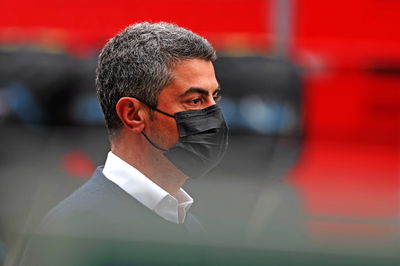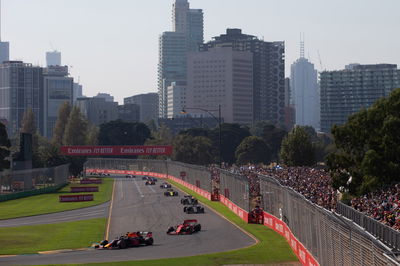'The most difficult job on the planet' - Ferrari F1 boss defends Masi

Masi has faced criticism for his decision to allow only the cars which separated F1 title rivals Lewis Hamilton and Max Verstappen to unlap themselves and set up a final-lap shootout to decide the outcome of the world championship in the Abu Dhabi Grand Prix.
Verstappen, who had pitted for fresh soft tyres under the Safety Car, overtook Hamilton on the last lap of the last race of the season to clinch both the win and his maiden world title.
Mercedes protested the outcome on the grounds that Masi had not followed the usual Safety Car restart procedure before the team decided to back down from an appeal four days after the season finale.
Hamilton has remained silent ever since conducting his post-race interview in parc ferme but was left “disillusioned” after being “robbed” of a record-breaking eighth world title, according to Mercedes boss Toto Wolff.
However, Ferrari chief Binotto has jumped to the FIA’s defence, describing Masi as having “the most difficult job on the planet”.
“On what happened in Abu Dhabi, I think whatever decision he would have taken, someone who will be happy, someone will be unhappy,” Binotto told media at Ferrari’s Christmas press conference.
“I think certainly his job has been the most difficult job on the planet at that time in Abu Dhabi to decide.
“It’s important to have lessons learned, if any. I think that will happen in the F1 Commission where it will be discussed, all the events and the situations, and identify if there is any improvement to be made for the future.
"That's the mandate from the World Council, which is the most important one.
“And as Ferrari, [we] are very happy to sit down with all the other team principles, the FIA, F1, to discuss if something could have been done in a different way.
“But still, I think judging the decisions would be wrong from my side because I believe, again, it was a very difficult call.
“It seems there are proper reasons why they managed it that way, maybe something different could have been done. Again, difficult to judge.”












